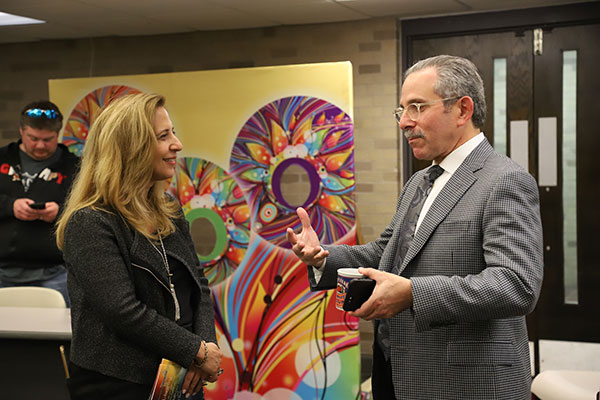In exploring the intricate tapestry of religious beliefs, one often encounters the assertion that Christianity is the only true faith. This notion, however, is met with a distinct perspective within the Bahá’í Faith, which views religious truth as both progressive and universal. The Bahá’í teachings posit that all major world religions, including Christianity, convey essential spiritual truths, albeit in ways that reflect the contexts and cultures from which they emerge.
1. The Unity of Religion
At the core of Bahá’í philosophy lies the principle of the unity of religion, which posits that all religions stem from the same divine source. Bahá’ís believe that, throughout history, God has revealed His will through various prophets, each of whom has founded a religion suited to the needs and capacities of their respective societies. This means that while Christianity provides profound spiritual insights and guidance, it is not the sole or final expression of divine truth. Bahá’í teachings encourage adherents to appreciate Christianity as both a vital chapter in the divine narrative and a precursor to the revelations that followed.
2. The Concept of Manifestations
Bahá’ís invoke the concept of Manifestations of God to elucidate how religious truth evolves. Manifestations include figures such as Jesus Christ, Moses, Muhammad, and Bahá’u’lláh, the founder of the Bahá’í Faith. Each Manifestation has a unique role in guiding humanity towards greater understanding and unity. Their messages, while distinct, are inherently harmonious and contribute to an overarching spiritual framework. This illustrates that Christianity, far from being an isolated truth, embodies a segment of a more extensive divine plan.
3. Progressive Revelation
Central to the Bahá’í understanding of religion is the idea of progressive revelation. This concept suggests that religious teachings unfold gradually over time. As humanity matures, so too do the teachings that guide its moral and spiritual development. Consequently, what may have been absolute truth in one era may evolve in the face of new social dynamics and understanding. The Bahá’í Faith views itself as the latest iteration in this continuum, asserting that while Christianity is a precious and true path, it is part of a larger, ongoing dialogue about humanity’s relationship to the divine.
4. Religious Tolerance and Acceptance
A hallmark of Bahá’í teachings is the promotion of religious tolerance and acceptance. In recognizing Christianity’s valuable contributions, Bahá’ís advocate for an interfaith dialogue that fosters mutual respect and understanding among different belief systems. This approach not only acknowledges the truth within Christianity but also invites followers of all religions to engage in a loving discourse about their shared spiritual goals. Such dialogue can serve as a bridge, alleviating the divisive notion of exclusivity often associated with claims of absolute truth.
5. Common Ethical Teachings
While differing in doctrine and narratives, Bahá’í teachings and Christianity share foundational ethical principles. Values such as compassion, justice, and the importance of service stand at the forefront of both religions. The Bahá’í perspective emphasizes that these shared moral teachings serve as a common ground for all faiths. By recognizing the core ethical messages inherent in Christianity, adherents can find shared objectives for humanitarian endeavors and societal advancement, thus underpinning a collaborative spirit among religions.
6. The Role of the Individual
In both Bahá’í and Christian thought, there is a strong emphasis on the role of the individual in the search for truth. The Bahá’í Faith encourages every person to undertake their investigation of reality and spirituality, guiding individuals to seek and understand ultimate truths rather than passively accept dogmatic assertions. This individuality in the process of learning and faith exemplifies a fundamental divergence from the claim of exclusivity within religions. It suggests that each person’s journey—is unique and serves as a testament to the multifaceted nature of religious truth.
7. The Finality of Religious Truth
Bahá’í teachings propose that while each religion initiates a distinct path toward God, none can claim finality in the narrative of divine revelation. Therefore, Christianity, like all other faiths, is respected for its unique contributions to this ongoing story. Recognizing the limitations of any single religion in encompassing the entirety of divine truth invites a paradigm shift—one that champions exploration, acceptance, and the belief that each faith illuminates different facets of an ultimately unfathomable divine reality.
8. Conclusion: An Invitation to Dialogue
The Bahá’í perspective on Christianity emphasizes the coexistence of truth across various religions. By affirming that Christianity is not the only path to the divine, Bahá’ís advocate for a broader understanding of spirituality that transcends sectarian divides. Embracing the multiplicity of pathways allows for enriched interfaith dialogue, fostering an atmosphere of mutual respect and collaborative moral action. Ultimately, the Bahá’í teachings invite believers from all traditions to unite in their quest for truth, nurturing a world characterized by shared values, love, and understanding.
